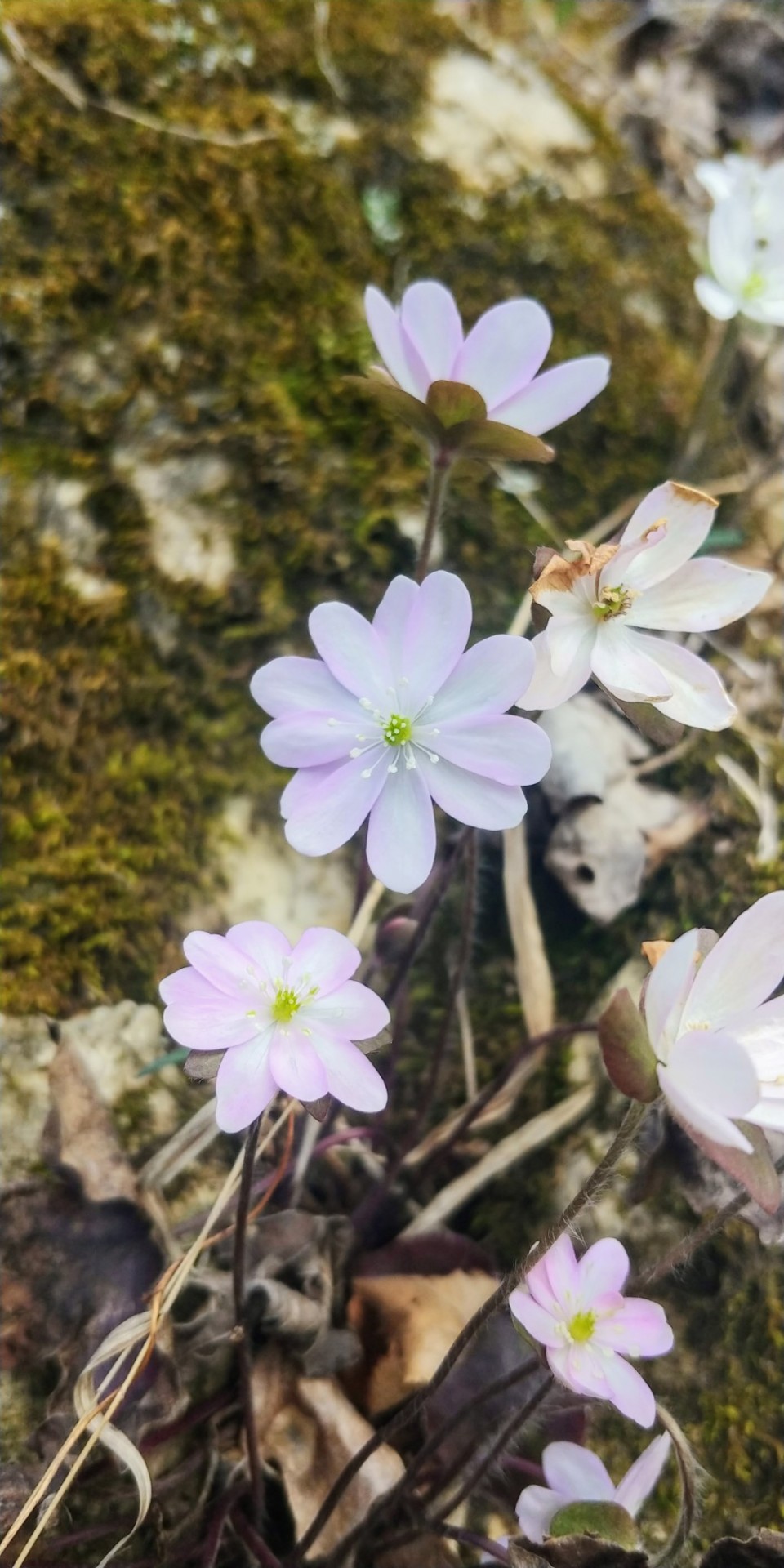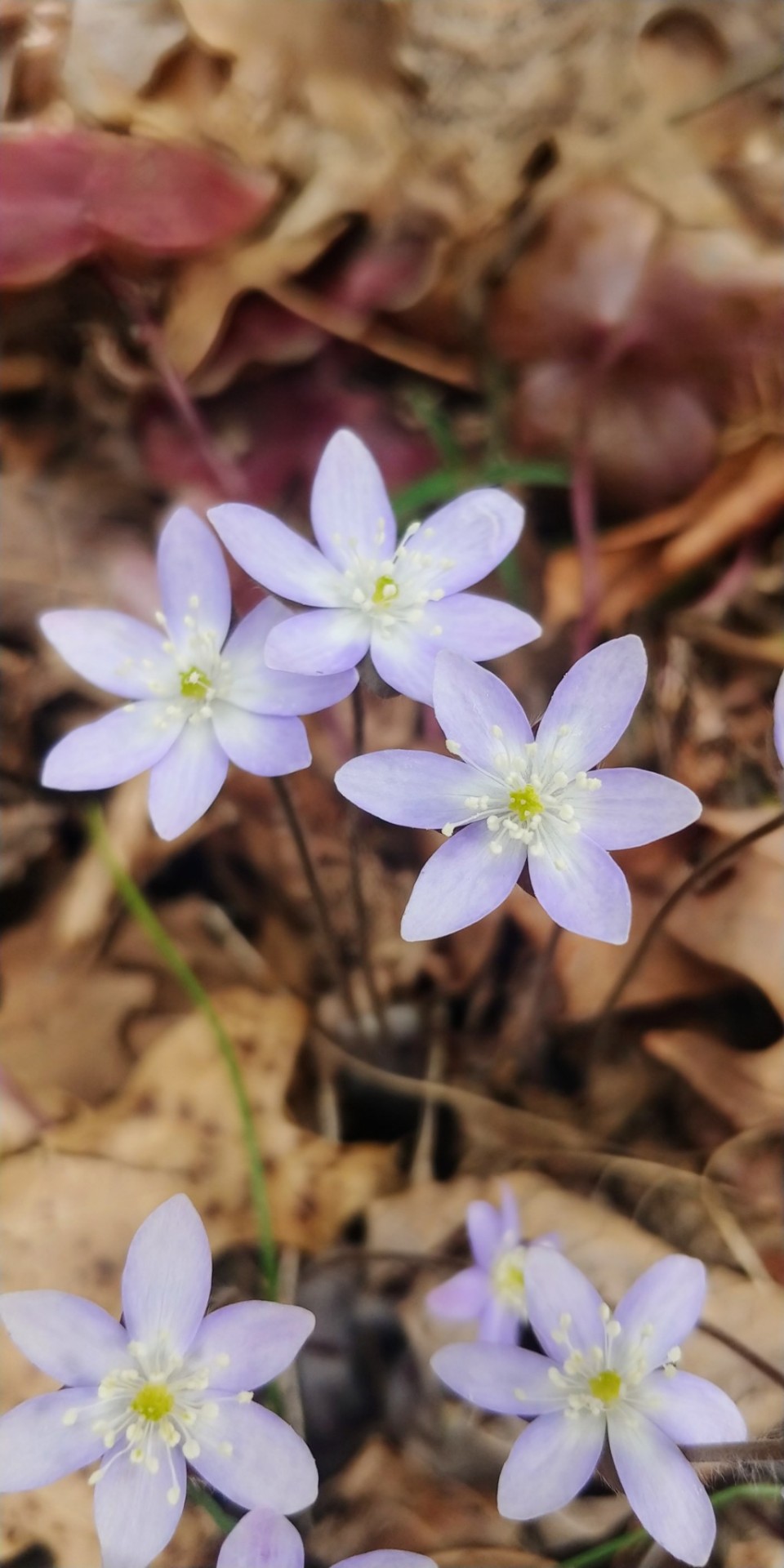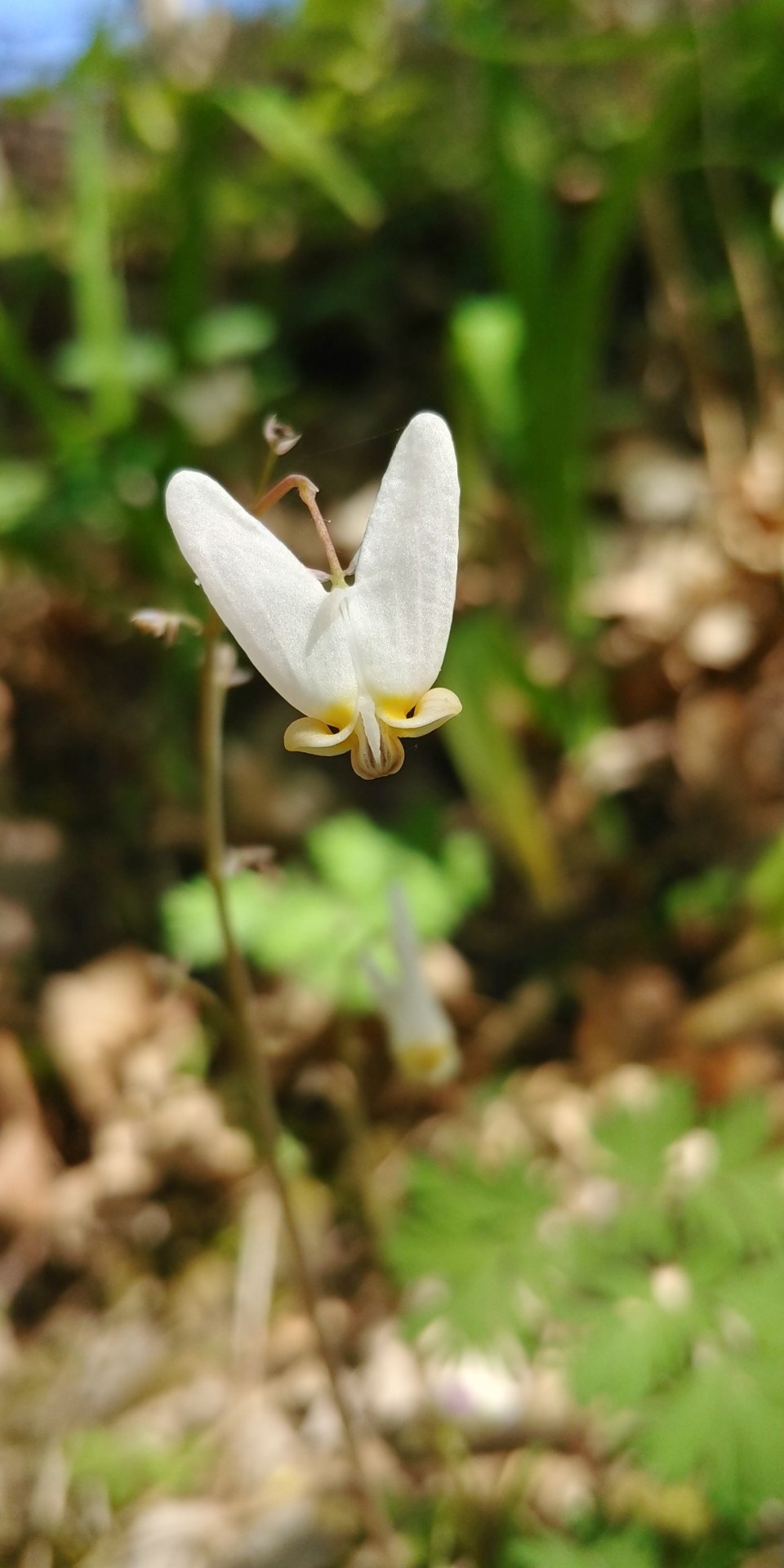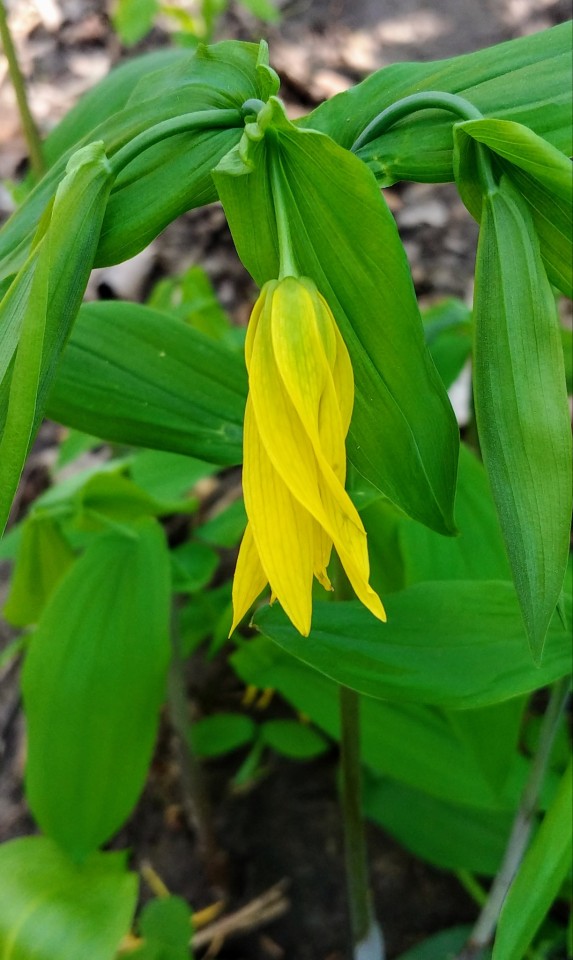
28/Female/Earthling- An amateur naturalist and geology major living in the Missouri Ozarks. Botany 🌿, mycology 🍄, geology 🏔️, foraging 🍓, gardening and more! 🌼🐦🦉🐝 😀 (Natural sciences are my niche.) •iNaturalist ID: oliviarosaline •Rockd Macrostrat Lab: Olivia Myers
86 posts
Sharp-lobed Hepatica

Sharp-lobed Hepatica
Hepatica acutiloba


These gorgeous spring ephemerals are usually found in woods with rich, somewhat alkaline, well drained-soils across eastern North America. Their flowers can vary in color and petal count. The hepatica plants pictured were growing on wooded hillsides featuring dolomite rock outcrops.
March 30th, 2023
St. Francois County, Missouri, USA
Olivia R. Myers
@oliviarosaline
-
 ethereal-forest-furry liked this · 1 year ago
ethereal-forest-furry liked this · 1 year ago -
 highshoals liked this · 1 year ago
highshoals liked this · 1 year ago -
 oxboxer liked this · 1 year ago
oxboxer liked this · 1 year ago -
 sublimenemesis reblogged this · 1 year ago
sublimenemesis reblogged this · 1 year ago -
 sublimenemesis liked this · 1 year ago
sublimenemesis liked this · 1 year ago -
 hildifons-hairyfoot reblogged this · 1 year ago
hildifons-hairyfoot reblogged this · 1 year ago -
 hildifons-hairyfoot liked this · 1 year ago
hildifons-hairyfoot liked this · 1 year ago -
 screeno42 reblogged this · 1 year ago
screeno42 reblogged this · 1 year ago -
 screeno42 liked this · 1 year ago
screeno42 liked this · 1 year ago -
 luckycatsgirl liked this · 1 year ago
luckycatsgirl liked this · 1 year ago -
 chaeul liked this · 1 year ago
chaeul liked this · 1 year ago -
 pimpmizziriam reblogged this · 1 year ago
pimpmizziriam reblogged this · 1 year ago -
 pimpmizziriam liked this · 1 year ago
pimpmizziriam liked this · 1 year ago -
 barinemiologist liked this · 1 year ago
barinemiologist liked this · 1 year ago -
 aleatoricwren liked this · 1 year ago
aleatoricwren liked this · 1 year ago -
 scrappio reblogged this · 1 year ago
scrappio reblogged this · 1 year ago -
 scrappio liked this · 1 year ago
scrappio liked this · 1 year ago -
 flyingdreamsofpeace liked this · 1 year ago
flyingdreamsofpeace liked this · 1 year ago -
 ajpfoon liked this · 1 year ago
ajpfoon liked this · 1 year ago -
 pingnova liked this · 1 year ago
pingnova liked this · 1 year ago -
 namelessennes liked this · 1 year ago
namelessennes liked this · 1 year ago -
 nevereacheaven liked this · 1 year ago
nevereacheaven liked this · 1 year ago -
 fullbarbarianllama reblogged this · 1 year ago
fullbarbarianllama reblogged this · 1 year ago -
 neurocrat liked this · 1 year ago
neurocrat liked this · 1 year ago -
 sharkfroglizard reblogged this · 1 year ago
sharkfroglizard reblogged this · 1 year ago -
 sharkfroglizard liked this · 1 year ago
sharkfroglizard liked this · 1 year ago -
 thirdstreetcettin liked this · 1 year ago
thirdstreetcettin liked this · 1 year ago -
 consult-sherlockholmes liked this · 1 year ago
consult-sherlockholmes liked this · 1 year ago -
 wormofmouth liked this · 1 year ago
wormofmouth liked this · 1 year ago -
 marbleousmego reblogged this · 1 year ago
marbleousmego reblogged this · 1 year ago -
 onetwothreemany reblogged this · 1 year ago
onetwothreemany reblogged this · 1 year ago -
 onetwothreemany liked this · 1 year ago
onetwothreemany liked this · 1 year ago -
 allthinky reblogged this · 1 year ago
allthinky reblogged this · 1 year ago -
 allthinky liked this · 1 year ago
allthinky liked this · 1 year ago -
 alittlebitofrainbyyourside reblogged this · 1 year ago
alittlebitofrainbyyourside reblogged this · 1 year ago -
 w1cked-w1tch reblogged this · 1 year ago
w1cked-w1tch reblogged this · 1 year ago -
 w1cked-w1tch liked this · 1 year ago
w1cked-w1tch liked this · 1 year ago -
 scientia-rex reblogged this · 1 year ago
scientia-rex reblogged this · 1 year ago -
 ingridsderberg liked this · 1 year ago
ingridsderberg liked this · 1 year ago -
 thelostcanyon liked this · 1 year ago
thelostcanyon liked this · 1 year ago -
 sarasakysunmoon liked this · 1 year ago
sarasakysunmoon liked this · 1 year ago -
 zehra-bella liked this · 1 year ago
zehra-bella liked this · 1 year ago -
 adrar-amellal24 liked this · 1 year ago
adrar-amellal24 liked this · 1 year ago -
 ravensvalley liked this · 1 year ago
ravensvalley liked this · 1 year ago -
 novemberful liked this · 1 year ago
novemberful liked this · 1 year ago -
 a-l-i-c-e-n liked this · 1 year ago
a-l-i-c-e-n liked this · 1 year ago -
 ishikorokoroishi liked this · 1 year ago
ishikorokoroishi liked this · 1 year ago -
 gardenersexyrecycled liked this · 1 year ago
gardenersexyrecycled liked this · 1 year ago
More Posts from Oliviarosaline

Dutchman's Breeches
Dicentra cucullaria
April 12th, 2023
St. Louis County, Missouri, USA
Olivia R. Myers
@oliviarosaline


Largeflower Bellwort
Uvularia grandiflora
Also known as Merrybells, this stunning spring ephemeral in the lily family is found in woods throughout central and eastern North America. Native Americans traditionally used this species as a remedy for certain skin conditions.
April 12th, 2023
St. Louis County, Missouri, USA
Olivia R. Myers
@oliviarosaline


Prairie Trillium
Trillium recurvatum
These unique, dark trillium plants caught our eye while we were exploring woods in Jersey County, Illinois. This species usually has splotchy green leaves. dailybotany suggested these trillium plants may have upped their anthocyanin production in response to exposure to higher levels of solar radiation. There were a few of these trilliums with dark leaves in the general area, and it may have been a sunnier than usual spot in the understory of the forest there, so this theory makes sense. I still wonder if it's possible this small population carries a genetic mutation... I have explored many woods and never seen trilliums this dark. I love listening to different theories and learning new info.
Trillium recurvatum is native to much of the Mississippi River basin in the central / eastern United States. Eastern Ohio has a few populations, which are listed as potentially threatened by their DNR. There are also a couple isolated populations in North Carolina, but it's debated whether or not they were actually planted long ago. Its closest lookalike with overlapping range is trillium sessile; however, the sepals on s. recurvatum plants curve downward as the flower opens, and the stem is usually much shorter than on t. sessile. This species can grow in habitats ranging from floodplains, to mesic forests and mesic savannas. Often, they're found growing in calcareous soils or over calcium-rich rocks such as limestone.
March 20th, 2024
Jersey County, Illinois, USA
Olivia R. Myers
@oliviarosaline

Hop Trefoil Clover
Trifolium campestre
This species of trifolium is not native to the United States, its native range is in Europe and Western Asia, but it has now been introduced in some areas of the US due to being grown for fodder and escaping. However, it's not yet listed as an invasive species here.
June 17th, 2023
Weldon Spring, St. Charles County, Missouri, USA
Olivia R. Myers
@oliviarosaline

Pale Jewelweed
Impatiens pallida
Native to much of eastern North America, pale jewelweed prefers wet soils in bottomland forests, along streams, etc... Jewelweed is also an old remedy for poison ivy rashes. Hummingbirds love the flowers as well. The pictured plants were growing en masse in a bottomland forest next to the Big River.
Sept. 1st, 2021
Washington County, Missouri, USA
Olivia R. Myers
@oliviarosaline